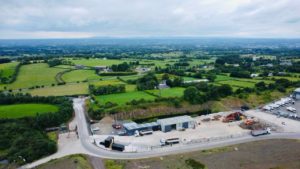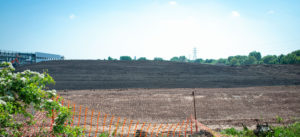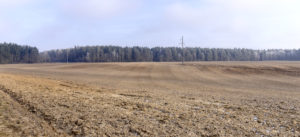Soil is considered the support system of all life. And yet huge amounts of it is still sent to landfill as excavated spoil from construction sites.
While dumping contaminated soil was seen as the only option in the past, new technology makes it less desirable today.
As well as costing developers in landfill fees, there are costs to the environment. Pollution from lorries taking the spoil to landfill and transporting soil back is a major cost financially and environmentally.
Millions of tonnes of CO2 alone is produced by lorries transporting spoil to landfill.
Recycling and sustainability mean contractors, local authorities and others who work in the construction industry are increasingly looking for alternatives to landfill.
New treatment and stabilisation technology means we at ATG Group can treat most contaminated soil to prevent it from being sent to landfill.
LockedIn® treats contaminated soil
Our soil stabilisation technique is called LockedIn®. We have been developing and refining it since 2015. By using the system, the mobility of contaminants in the soil is reduced, which means their physical make-up changes. This prevents them from being a pollution risk.
Excavated soil can be reused on site after treatment and validation. As there are no costs for contaminated material to be disposed of nor transporting clean material, it helps save on cost and landfill space.
The process has saved our clients millions of pounds and millions of euros in development costs.
What is spoil waste?
Waste is defined in Article 1(a) of the European Waste Framework Directive (WFD) as ‘any substance or object … which the holder discards or intends or is required to discard’.
Moving spoil from one location to another requires the correct environmental permits. The waste disposal is also subject to landfill tax. Using LockedIn® means eliminating tax and transportation costs.
Landfill sites are rapidly decreasing, so as well as the financial cost, there is a huge environmental cost beyond transportation. Some of the spoil from development sites can be recycled on-site. This further reduces the environmental cost when compared with sending it to landfill.
What to do now
Any development site – whether new-build homes, commercial, dredging or road building projects – has the potential to contain contaminated waste. Clearly, this is something that will be discovered early during the acquisition of land or when bidding for contract work.
If this happens, you can contact us immediately and we will take samples for study. The good news is that if soil can be treated and made safe for backfill, we will feedback to you as soon as possible.
Not only will this save you costs, but it will also help you prove your environmental credentials. Sending soil to landfill is now the last course of action.
For more details, contact our team today.








